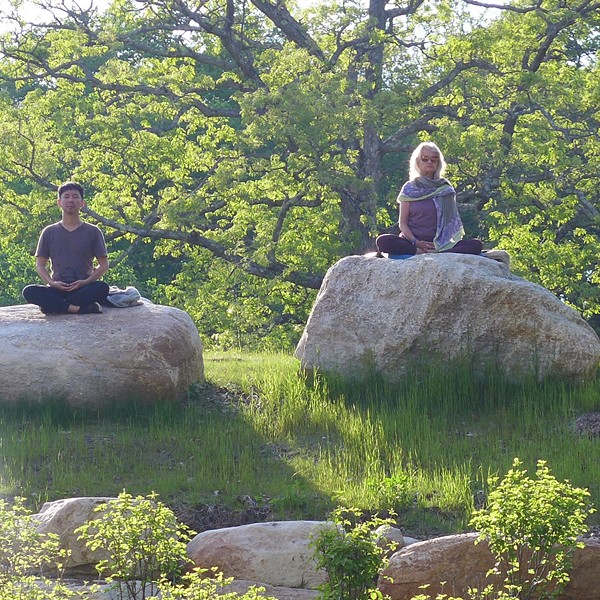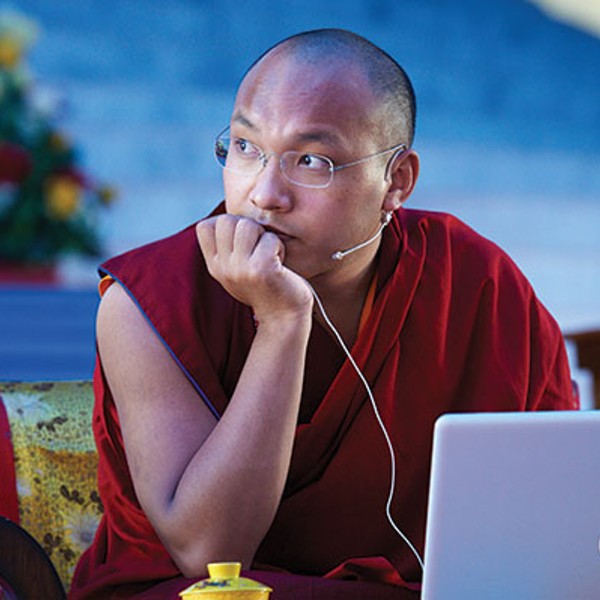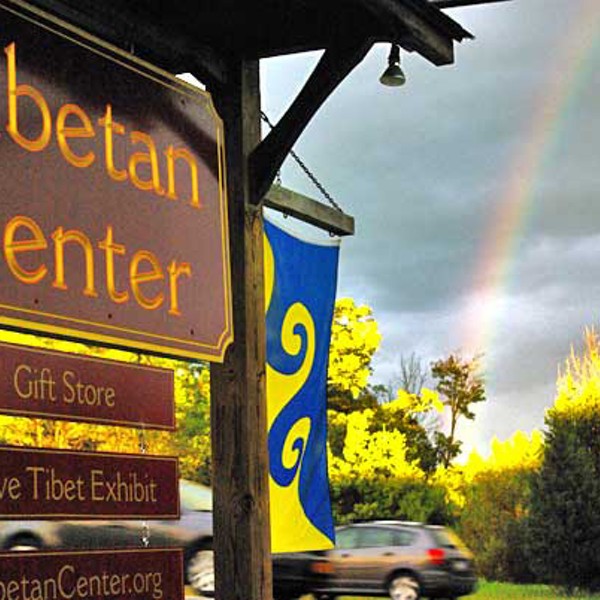Dharma is your process along the journey; it's what you actually do. Sanga is the family of your brothers and sisters already on the path.
More traditional forms of Buddhism define these a bit more rigidly. For example, Dharma is sometimes defined as following the teachings of the Buddha. The Karmapa said that following the teachings and correct action are the same thing. Sanga is traditionally defined not as the community but as the priesthood. He expanded the idea a bit. The implication here is that we are all ministers of compassion; we are all teachers. Sanga is the community of those who are helping.
The afternoon session involved what Buddhists call the taking of refuge vows. I've been involved in my community as a kind of messenger or teacher for a long time. It was amazing being in a room of 1,500 people, all of whom were promising to be more helpful.
Taking a guess, I would say that about half of us there were locals from in and around the Woodstock area. Imagine if all of those people really took that vow to heart; imagine if there really were a focus on loving self-awareness, love-in-action, and honoring the family of those who are helping.
It would take far fewer people than that to completely transform a community—even a large one. Teaching through action (Dharma) has a way of spreading the light, slowly though it may seem.
Apathy deepens the darkness. Dharma is the correct response. It was very encouraging both to hear this and to know that the idea was being given a credible endorsement.
The thing I don't understand about apathy as a choice—that is, about pretending that everything is someone else's business—is that it's so painful. I may have to go out of my way in order to help someone, but I feel better when I do it. I would feel no better if I chose not to; personally, I am helpful to be helpful and because it feels good to. Helping, or acting in a loving way, spreads the positive energy. If someone has helped you, you're more likely to help someone else.
Typically, we get caught in the negative expression of this principle, the logic "Nobody wants to help me and I don't want to help anyone." We get this message a lot—it's the very core of the neoconservative, Ayn Rand-based social theory that altruism does not exist. Take note that, in fact, altruism is self-serving because it makes you happier and helps you feel less isolated.
The thing is, in our world, it takes a spiritual master on the level of the Karmapa to point this out, if anyone is going to believe it. We think we need a reincarnated expression of the Buddha himself to tell us that our lives will be better if we're more willing to open ourselves up and offer our goodwill.
Hey, whatever it takes.


















